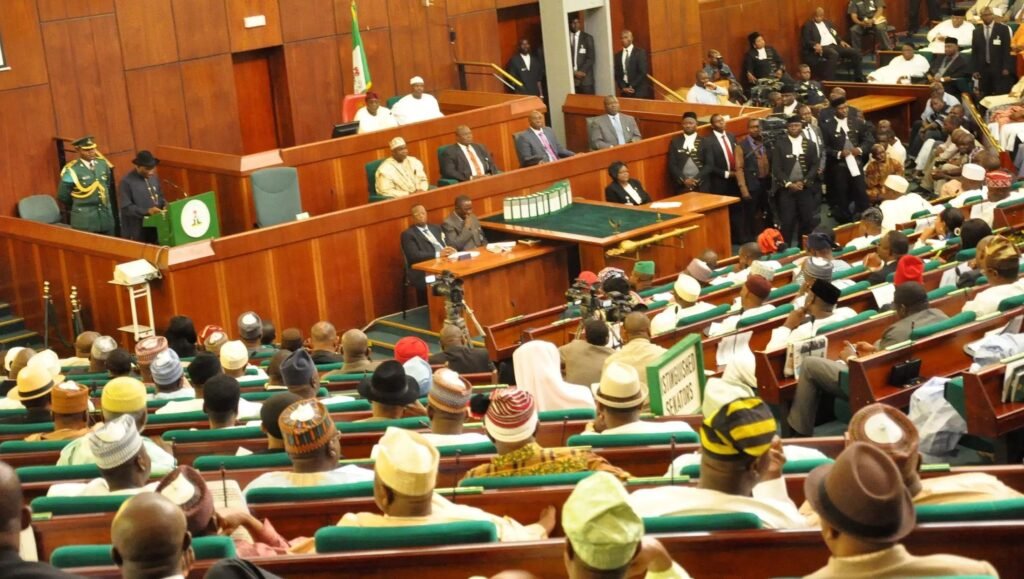In recent years, political defections have become a common occurrence in Nigeria’s political landscape. Legislators frequently switch allegiances, often citing ideological differences or disagreements with party leadership. However, such defections have raised concerns about the stability and integrity of the democratic process. To address this issue, a proposed bill aims to mandate that members of the National Assembly and State Houses of Assembly officially resign from their political parties before defecting to another. This article delves into the rationale behind the bill, its potential implications, and the legislative process involved.

Background and Rationale
Political defections, while not unique to Nigeria, have been particularly pronounced in the country. Legislators often move from one party to another, sometimes multiple times within a single electoral term. This phenomenon has led to questions about the commitment of elected officials to their constituents and the principles of party politics.
The proposed bill seeks to address these concerns by requiring that any member of the National Assembly or State House of Assembly who intends to defect from their party must first officially resign from that party. This measure aims to:
- Ensure Accountability: By resigning before defecting, legislators would be held accountable for their actions, providing transparency to their constituents about their political affiliations.
- Promote Party Loyalty: The bill seeks to encourage party loyalty and discourage opportunistic defections that may undermine the stability of legislative bodies.
- Strengthen Democratic Institutions: By reducing the frequency of defections, the bill aims to enhance the credibility and effectiveness of legislative institutions in Nigeria.

Legislative Process and Sponsorship
The bill is currently under consideration in the National Assembly. The sponsor of this bill is Hon. Rimamnde Kwewum ShawuluIt. He has been a vocal advocate for political reform and has previously sponsored legislation aimed at enhancing transparency and accountability in governance.
The bill has undergone several readings and is currently in the committee stage, where it is being reviewed and debated by lawmakers. If approved, it will proceed to the Senate for concurrence before being sent to the President for assent.
Potential Implications
If enacted, the bill could have several significant implications for Nigerian politics:
- Impact on Political Parties: Political parties may experience a reduction in defections, leading to more stable party structures. However, parties may also face challenges in managing internal dissent and ensuring that members remain aligned with party ideologies.
- Effect on Legislators: Legislators may become more cautious in their political affiliations, weighing the consequences of defection more carefully. This could lead to a more deliberate and principled approach to political decision-making.
- Constitutional Considerations: The bill may raise questions about the constitutional rights of legislators to freely associate and change political parties. Legal experts will need to assess whether the proposed measure aligns with constitutional provisions regarding freedom of association.

Criticisms and Concerns
While the bill has garnered support from various quarters, it has also faced criticism. Opponents argue that the requirement to resign before defecting could infringe upon the rights of legislators to freely associate and change political parties. They contend that such a measure could be used to stifle political dissent and limit the ability of lawmakers to represent their constituents effectively.
Additionally, there are concerns about the potential for the bill to be misused for political gain. Critics fear that the measure could be employed to target opposition lawmakers and suppress political competition.
Conclusion
The proposed bill to require official resignation from a political party before defection by members of the National Assembly and State Houses of Assembly represents a significant step in addressing the challenges posed by political instability and opportunistic defections in Nigeria. While the bill aims to promote accountability and strengthen democratic institutions, it also raises important questions about the balance between party loyalty and individual rights.
As the legislative process unfolds, it will be crucial for lawmakers to carefully consider the potential impacts of the bill and ensure that it aligns with constitutional principles and democratic values. The outcome of this legislative initiative could have far-reaching implications for the future of Nigerian politics and governance.
Note: The information provided in this article is based on publicly available sources and may be subject to change as the legislative process progresses.











